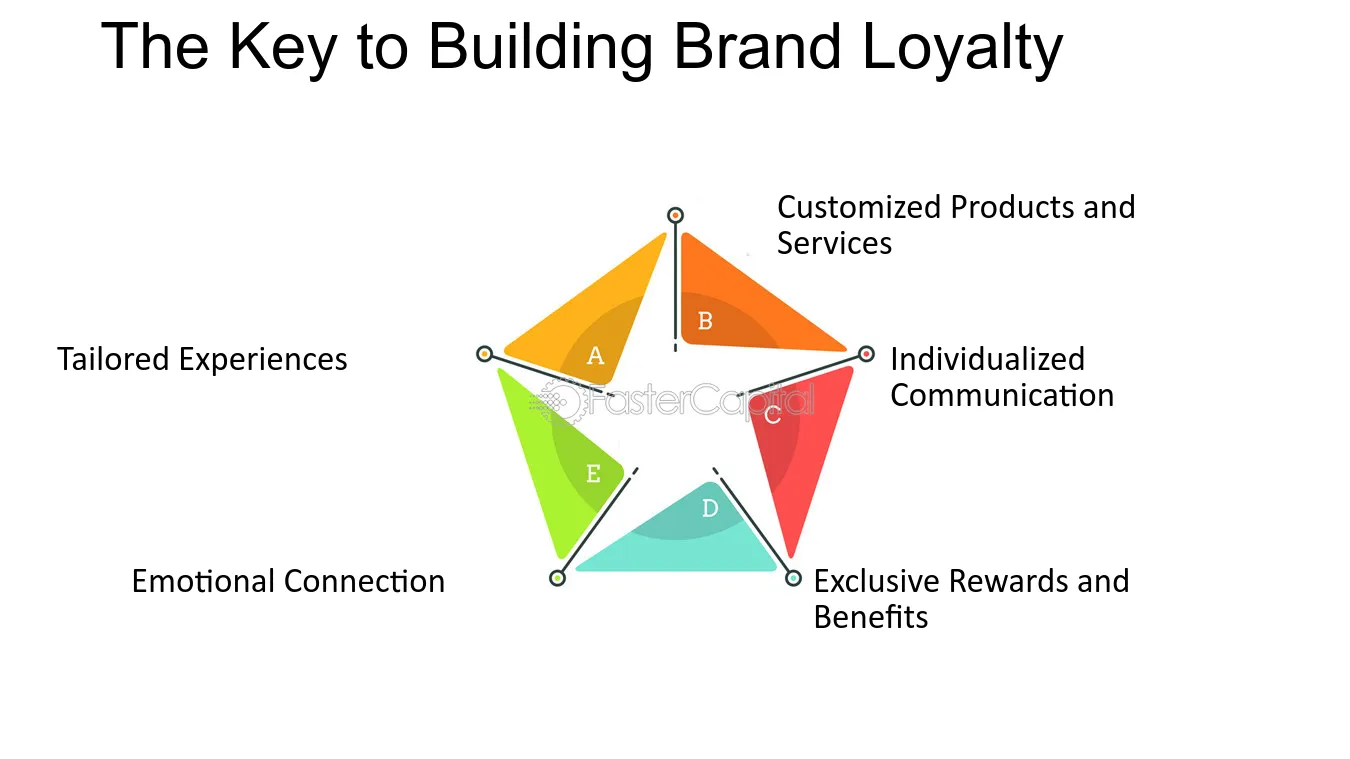
What is Brand Loyalty?
Brand loyalty refers to the tendency of consumers to consistently choose a particular brand over its competitors, often driven by positive experiences and emotional connections. Loyal customers are not only repeat buyers but also advocates who promote the brand through word-of-mouth and social sharing. This commitment can result from factors such as product quality, customer service, and brand values aligning with personal beliefs.
Why is Brand Loyalty Important?
- Increased Customer Retention: Loyal customers are more likely to continue purchasing from a brand, leading to higher customer retention rates. Retaining existing customers is often more cost-effective than acquiring new ones.
- Higher Lifetime Value: Loyal customers tend to spend more over their lifetime compared to new or occasional buyers. This increased lifetime value contributes significantly to a company’s revenue and profitability.
- Positive Word-of-Mouth: Loyal customers are more likely to recommend the brand to others, providing valuable word-of-mouth marketing that can drive new customer acquisition at a lower cost.
- Resilience to Competition: Strong brand loyalty can provide a buffer against competitors. Loyal customers are less likely to switch brands even in the face of competitive offers or price changes.
- Brand Advocacy: Loyal customers often act as brand ambassadors, sharing their positive experiences on social media and through personal networks, which enhances the brand’s reputation and credibility.
Strategies for Building Brand Loyalty
- Deliver Exceptional Customer Service: Providing outstanding customer service is fundamental to building loyalty. Prompt, personalized, and empathetic service can create memorable experiences that encourage customers to return.
- Offer High-Quality Products and Services: Consistently delivering quality products and services that meet or exceed customer expectations fosters trust and satisfaction, which are key components of brand loyalty.
- Create a Loyalty Program: Implement a well-structured loyalty program that rewards repeat purchases and customer engagement. Offer incentives such as discounts, points, or exclusive perks to encourage continued patronage.
- Engage with Customers: Build strong relationships with customers through regular engagement. Utilize social media, email marketing, and personalized communication to keep customers informed and connected with your brand.
- Personalize the Experience: Use data and insights to personalize interactions and offers. Tailored recommendations, customized messages, and personalized promotions can make customers feel valued and understood.
- Show Appreciation: Recognize and appreciate loyal customers through thank-you notes, exclusive events, or special offers. Demonstrating gratitude reinforces positive feelings and strengthens customer bonds.
- Maintain Brand Consistency: Ensure that your brand message, values, and identity are consistent across all touchpoints. Consistency helps build trust and reinforces the brand’s reliability.
- Solicit and Act on Feedback: Regularly seek customer feedback and act on it. Addressing concerns and implementing suggestions shows customers that their opinions matter and that the brand is committed to continuous improvement.
- Build Emotional Connections: Connect with customers on an emotional level by aligning your brand with values or causes they care about. Emotional connections can create deeper loyalty and advocacy.
- Provide a Seamless Experience: Ensure that the customer journey is smooth and hassle-free, from browsing to purchasing and after-sales support. A seamless experience enhances satisfaction and encourages repeat business.
Measuring Brand Loyalty
- Customer Retention Rate: Track the percentage of customers who continue to do business with your brand over a specific period. High retention rates indicate strong brand loyalty.
- Net Promoter Score (NPS): Measure customer willingness to recommend your brand to others using NPS surveys. A high NPS score typically reflects strong brand loyalty and customer satisfaction.
- Customer Lifetime Value (CLV): Calculate the total revenue a customer is expected to generate throughout their relationship with your brand. Higher CLV suggests effective brand loyalty strategies.
- Repeat Purchase Rate: Analyze the frequency at which customers make repeat purchases. A high repeat purchase rate is a clear indicator of brand loyalty.
- Social Media Engagement: Monitor social media interactions, including likes, shares, comments, and mentions. High levels of positive engagement can signal strong brand loyalty and advocacy.
- Customer Feedback and Reviews: Evaluate customer feedback, reviews, and testimonials. Positive feedback and high ratings often correlate with strong brand loyalty.
- Loyalty Program Metrics: Track participation rates, redemption rates, and overall engagement with your loyalty program. These metrics can provide insights into the effectiveness of your loyalty initiatives.
- Churn Rate: Measure the rate at which customers stop doing business with your brand. A low churn rate indicates higher brand loyalty and satisfaction.
Conclusion
Brand loyalty is a powerful asset that can drive sustained business success and growth. By focusing on exceptional customer service, high-quality offerings, and meaningful engagement, companies can build and nurture strong customer loyalty.
Measuring brand loyalty through various metrics provides valuable insights into the effectiveness of loyalty strategies and helps identify opportunities for improvement.
Ultimately, investing in brand loyalty not only enhances customer satisfaction but also strengthens the brand’s position in the market and fosters long-term profitability.

